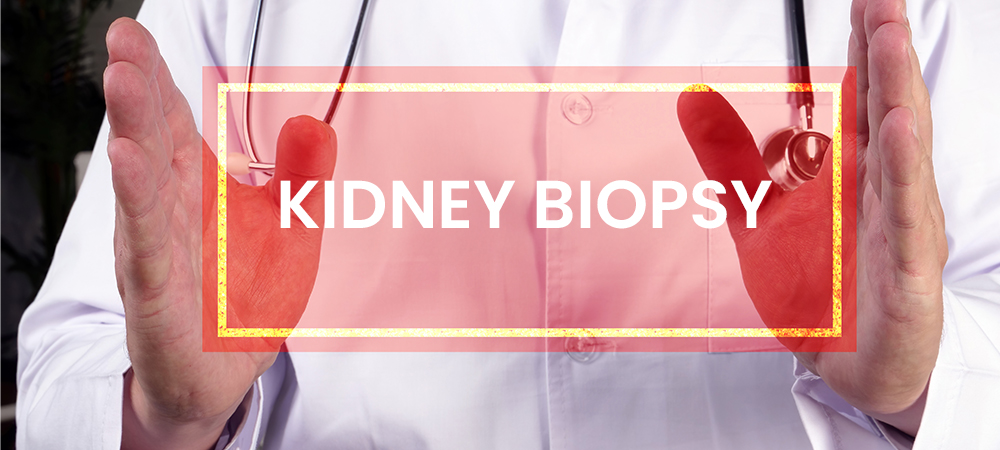Kidney Biopsy Procedure: What to Expect Before, During, and After
2025-06-10 / RG STONE HOSPITAL / Kidney Stone

The kidneys play a vital role in filtering waste, balancing fluids, and maintaining overall health. When something goes wrong, doctors may need a closer look at what’s happening inside the kidney tissue. That’s where a kidney biopsy procedure comes in. Though the idea of a biopsy may sound intimidating, it’s a commonly performed diagnostic test that offers critical insights into kidney health.
Let’s walk you through the entire biopsy procedure for kidney—what it is, why it's done, and what to expect at each stage.
What is a Kidney Biopsy?
A kidney biopsy (also called a renal biopsy) is a medical procedure where a small piece of kidney tissue is removed for examination under a microscope. This sample helps nephrologists diagnose the exact cause of kidney issues, assess disease severity, or evaluate how well a transplanted kidney is functioning.
There are two main types of kidney biopsy:
-
Percutaneous (needle) biopsy – the most common method, done using a thin needle through the skin.
-
Surgical biopsy – less common, used when needle biopsy isn’t possible, typically performed under general anesthesia.
Why is a Kidney Biopsy Done?
Doctors may recommend a kidney biopsy procedure for several reasons:
-
Unexplained blood in urine (hematuria) or protein in urine (proteinuria)
-
Sudden or chronic kidney failure
-
To monitor treatment response for kidney diseases
-
To examine a kidney transplant for signs of rejection
-
To diagnose specific types of glomerulonephritis, lupus nephritis, or nephrotic syndrome
By analyzing kidney tissue under a microscope, specialists can determine the precise cause of kidney problems and tailor the most effective treatment plan.
Before the Kidney Biopsy: Preparing for the Procedure
Preparation is crucial to ensure a safe and successful biopsy.
-
Medical History Review
Your doctor will review your medications, allergies, and bleeding risks. It’s essential to inform your care team about any blood thinners, as these may need to be paused temporarily.
-
Blood Tests
Blood tests are conducted to check clotting ability and overall kidney function.
-
Imaging Tests
An ultrasound or CT scan is usually done to locate the kidney and guide the biopsy.
-
Fasting
You may be asked not to eat or drink anything for a few hours before the procedure.
During the Procedure: What Happens
Most biopsy procedures for kidney are performed under local anesthesia with real-time imaging.
-
Positioning
You’ll lie on your stomach or side, depending on which kidney is being biopsied. -
Numbing the Area
A local anesthetic is applied to numb the skin and underlying tissues. -
Needle Insertion
Using ultrasound guidance, the doctor inserts a special needle through the skin into the kidney to collect a small tissue sample. -
Tissue Collection
Typically, one or two small samples are taken. You may be asked to hold your breath briefly during the needle insertion. -
Completion
The area is bandaged, and you’ll be moved to a recovery area for observation.
The entire process usually takes 30 to 60 minutes, and most patients are awake throughout the procedure.
After the Kidney Biopsy: Recovery and Care
Once the procedure is complete, you’ll be monitored closely:
-
Rest and Observation
Patients usually lie flat for 4 to 6 hours to minimize bleeding risk. -
Monitoring Vital Signs
Blood pressure, pulse, and urine output are checked regularly to ensure stability. -
Post-Biopsy Instructions
You’ll be advised to avoid strenuous activity, heavy lifting, and certain medications for at least 48 hours. -
Results Timeline
The biopsy results are generally available within a few days. These findings help guide your treatment plan moving forward.
Risks and Complications
Like all medical procedures, kidney biopsies carry some risks, though serious complications are rare. Potential risks include:
-
Bleeding in the urine (temporary)
-
Pain or discomfort at the biopsy site
-
Infection (very rare)
-
Accidental injury to surrounding organs or blood vessels
Most patients recover smoothly, especially when the procedure is done by experienced professionals under safe conditions.
Expert Kidney Care at RG Hospitals
At RG Hospitals, we understand how important accurate diagnosis is when it comes to managing kidney health. Our state-of-the-art facilities and highly skilled nephrologists ensure that the kidney biopsy procedure is performed with utmost precision, safety, and care.
Whether you need a biopsy for diagnostic clarity or post-transplant evaluation, our expert team guides you through every step—from preparation to recovery. Backed by advanced imaging technology, sterile procedure rooms, and compassionate patient care, RG Hospitals stands as a trusted name in nephrology.
Take Control of Your Kidney Health
If you or a loved one has been advised to undergo a biopsy procedure for kidney, don’t be overwhelmed. With the right information, expert care, and a supportive environment, the process can be safe and informative.
Trust RG Hospitals to provide clarity, comfort, and confidence in every step of your kidney care journey.
Categories
Hernia Repair
Appendicitis
Piles
Urological Treatment
Hernia treatment
Enlarged Prostate (BPH)
Gall Bladder Stone
Urinary / Kidney Stone
Vitamins
Indian Health Care System
Exercise
Obesity
Female Urinary Incontinence
Single Incision Laparoscopic Surgery (SILS)
Kidney Cancer
Bladder Cancer
Ovarian cancer
Nephrology
Bariatric Surgery
Kidney Function Test
Female Urology
Radiation Therapy
Alcoholic Fatty Liver
Liver disease
Gastroenterology
Kidney Disease
Nutrition & Health
Lung Cancer

